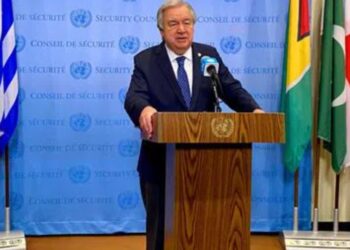In a landmark move, the United Nations has launched a new global initiative to establish an international framework for AI governance. The announcement comes as the rapid development of artificial intelligence raises pressing concerns about its potential impact on security, human rights, and the global economy. The new initiative aims to bring together governments, civil society, the private sector, and academia to address these challenges and ensure AI is developed and deployed responsibly.
The dialogue is a direct response to a growing consensus among world leaders that AI cannot be regulated by any single country. The cross-border nature of technology requires a collaborative, global approach to manage its risks, including the potential for job displacement, the spread of misinformation, and the use of AI in autonomous weapons systems. The UN’s role is to serve as a neutral platform for these discussions, fostering cooperation and building trust among diverse stakeholders.
Key areas of focus for the new governance framework include developing shared principles for ethical AI, creating standards for data privacy and security, and establishing mechanisms for monitoring and enforcing compliance. The initiative also seeks to ensure that developing nations are not left behind in the AI revolution, advocating for equitable access to technology and the resources needed to build local capacity.
The formation of this global dialogue is a recognition that the stakes of AI development are incredibly high. Without a coordinated effort, experts warn that the world could face a fragmented and chaotic AI landscape, leading to a “race to the bottom” on safety and ethics. The UN’s effort is a first step toward building a unified front, ensuring that the benefits of AI are realized while its risks are effectively mitigated. The road ahead will be long and complex, but the establishment of this dialogue signals a collective commitment to shaping a more secure and equitable future with AI.
















